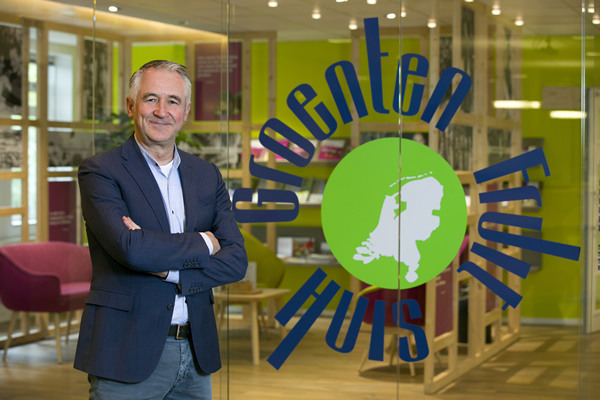Since the Corona crisis started to take on a more ominous shape, a crisis team was set up within GroentenFruit Huis, in which all the points of attention in the chain are on the table. Such as transport, food safety, labor, market access and lobbying the government.
The team is meeting daily to agree on actions to be taken and asks members to take an inventory. This team takes care of communication with members on a daily basis and takes actions towards government and other stakeholders.
In addition, a horticultural association will also act as Greenport Nederland, in which, in addition to GroentenFruit Huis, parties such as banks, suppliers and Dutch Agricultural and Horticultural Organisation (LTO) are also represented. Richard Schouten about GroentenFruit House crisis team and giving us an update on the situation.

Damage
"The damage to our companies is already great, especially with the food service providers. They speak of 50-80% less turnover. Suppose there is a lock down, then many more companies will get into trouble. In a Greenport context, we are therefore working together with, the Confederation of Netherlands Industry and Employers (VNO-NCW) and MKB Nederland to open up arrangements for granting credit and compensation. It cannot be the case that companies go bankrupt due to this Corona crisis. We are pleased with the package of measures that the government has made available and we try hard to work with banks, governments and authorities to come to a possible arrangement for claims. At the moment, intervention or inability to harvest is not yet an issue, but there will be specific crops where this may occur. We will provide the right tools for this. Of course, companies can claim, in the framework of Dutch regulations, for a reduction of working hours."
"For things that we can do together, we also act as horticulture together towards government. As far as the fruit and vegetable sector is concerned, we do it ourselves, "explains Richard. "The main thing now is to maintain the food supply. That communication must be substantiated with figures and facts. We are currently calling many members to gather knowledge and listen to the bottlenecks, which provides a lot of good information. We have formulated the most important files for labour, logistics and security of supply."
Labour
"The main labour challenge now is to have enough staff available. This starts with the harvest, but also applies to labour in sorting and packaging, in the cutting plants and in transport. For example, we have great concern about the use of seasonal workers. More and more borders are closing and we are very concerned about that. This also affects labour mobility. We must not have borders within Europe.
Keeping labourers available is discussed in both The Hague and Brussels. We are working on this with other organisations that are experiencing the same problems," says Richard.
Logistics
In the logistics area, we are committed to avoiding obstacles in the transport of fruit and vegetables, both in supply from the various countries and to outlets. Containers seem to be sufficiently available, but it is also very busy in the ports. We do everything we can to reduce the paperwork as much as possible, so that there is as little delay as possible. In fact, we are calling for a Green Lane for fruit and vegetables. In addition, we call on the government to be flexible, and fortunately we see that's happening. We have short lines of communication with parties such as: The Netherlands food and consumer product safety authority (NVWA), Quality Control Bureau (KCB), Customs and the Port of Rotterdam Authority and we are happy with how this collaboration is going, "says Richard.
Security of supply
"There are many uncertain factors in the supply and sales chain. It is precisely this supply from the grower that we bring to the attention of the government. Supermarkets are currently selling much more product than usual, while food service sales are decreasing. We advocate that all outlets for fruit and vegetables remain open, including itinerant trade, specialty shops, farm sales and home delivery. We have been identified as a crucial sector and must therefore be able to use all sales channels, "says Richard.
"We maintain a good relationship with the supermarkets, but we ask them to understand that there are extra costs involved in the supply of cultivation and trade. It is reasonable that there is a fee for this.
You can't just charge those costs to the supplier," concludes the chairman of the crisis team.
